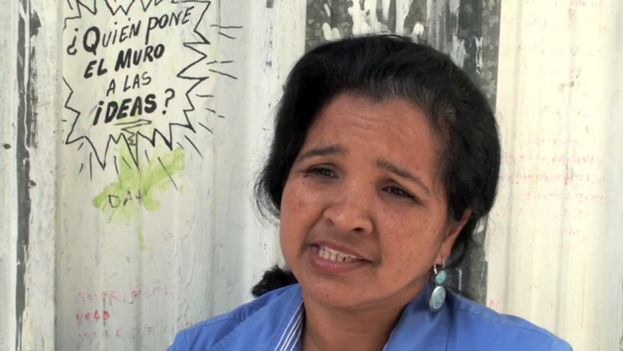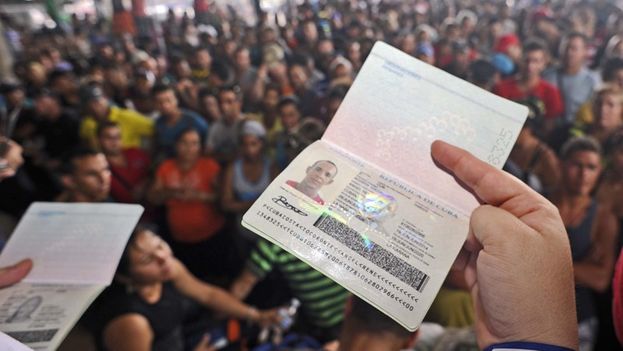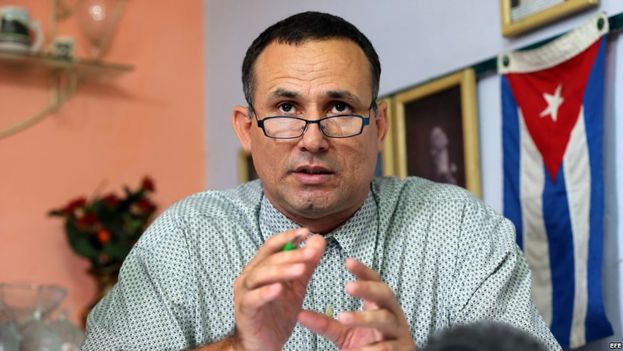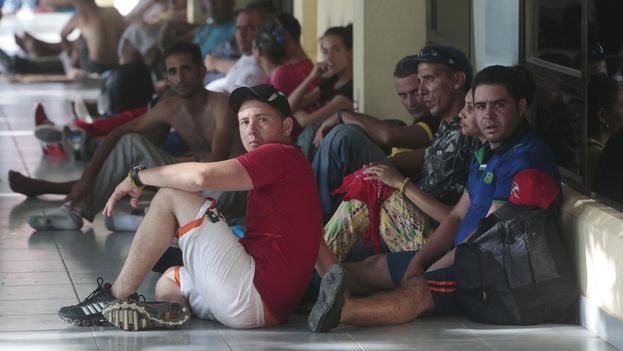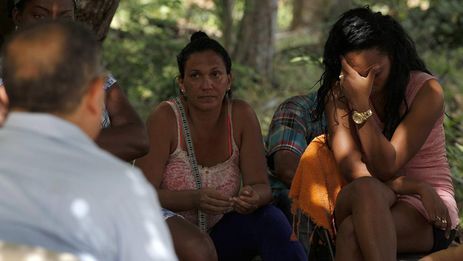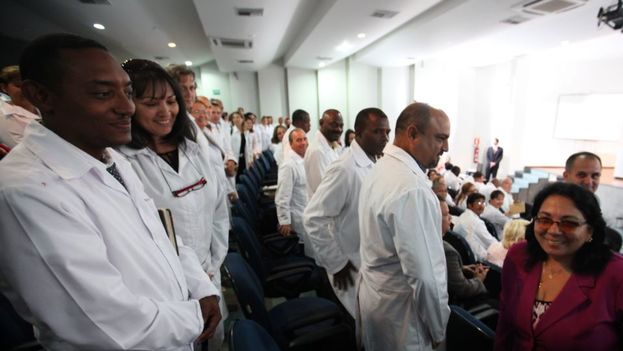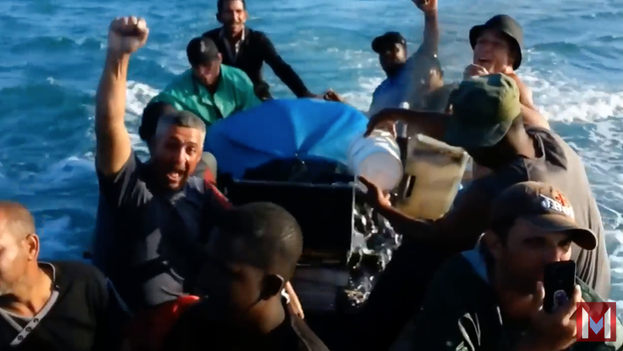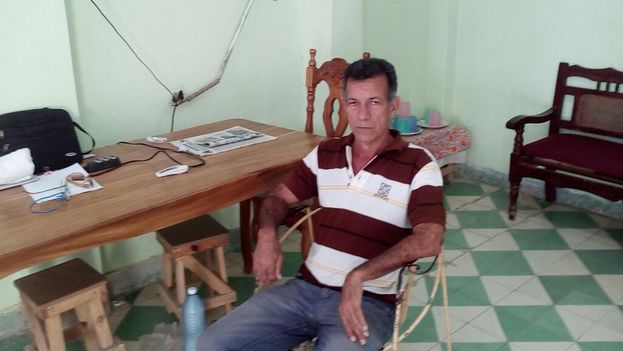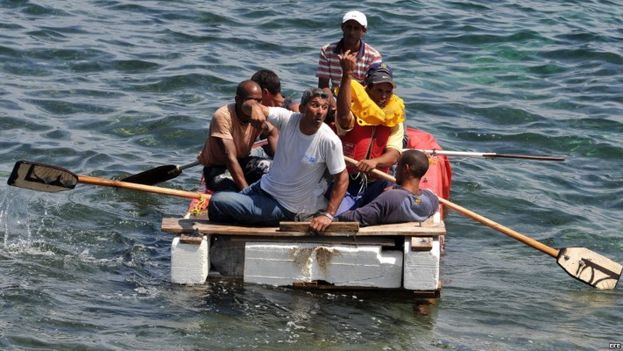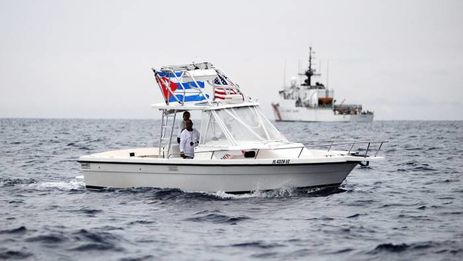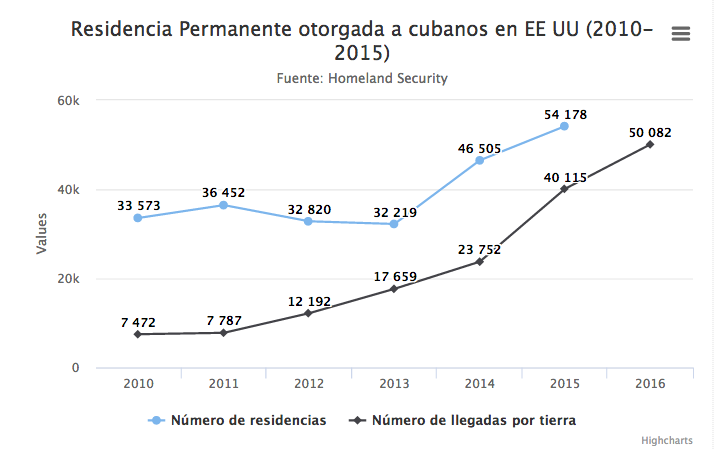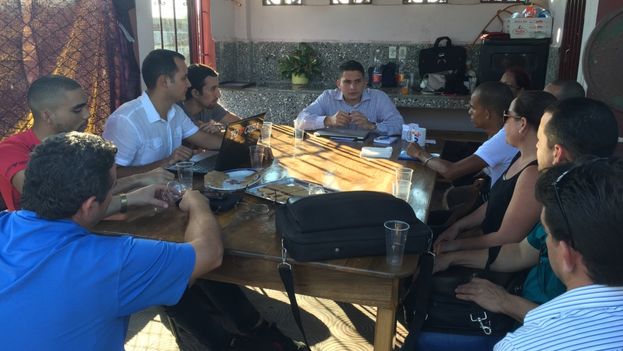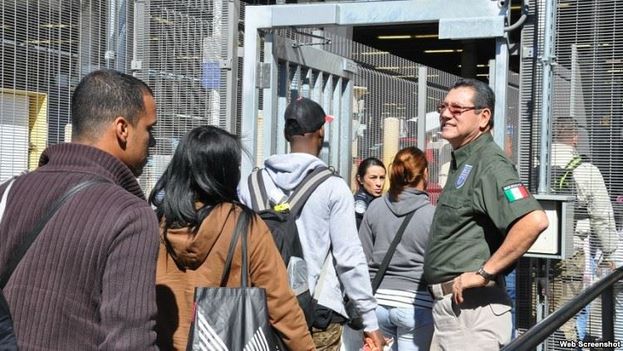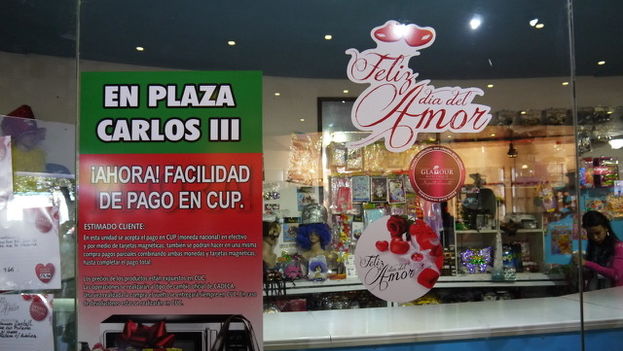
![]() 14ymedio, Havana, Miriam Celaya, 11 January 2017 — It is not common, in the middle of all the gloom and the torrents of noteworthy dates that constitute the bulk of the official press, to find a journalistic work that brings to light — even partially — the obstacles that derive from one of the most stubborn problems of the Cuban economy: the double currency system.
14ymedio, Havana, Miriam Celaya, 11 January 2017 — It is not common, in the middle of all the gloom and the torrents of noteworthy dates that constitute the bulk of the official press, to find a journalistic work that brings to light — even partially — the obstacles that derive from one of the most stubborn problems of the Cuban economy: the double currency system.
A report published this Sunday in Juventud Rebelde (Rebel Youth) evauated the sales results in both national currencies (CUP and CUC) in the so-called shopping centers. The report indicates that almost three years after the start of this “experiment,” it becomes apparent that the resulting benefits are reduced almost exclusively to the simplification of the exchange process. continue reading
The only improvement is that shoppers who only have ordinary currency (CUP) interested in making purchases at the foreign currency shops do not need to exchange their currency into CUC at the currency exchanges before they shop
In the case of more comprehensive terms, the improvement is that shoppers who only have ordinary currency (CUP) interested in making purchases at the foreign currency shops do not need to exchange their currency into CUC at the currency exchanges (Cadeca) before they shop, thus avoiding the consequent inconvenience of long lines, wasted time and sometimes traveling from distant places, as they can now transact their purchases in the stores themselves in CUP.
Another advantage that, without going into the sordid details, reporters mention, is that with the undifferentiated use of both currencies “the illegal currency market has been restricted to a minimum.” In practice, this does not mean that the underground exchange markets have disappeared or been weakened — as the article implies — but that the excellent health the illegal transactions continue to enjoy occurs in closed spaces. As is well known, some go this route when they sell their properties intending to emigrate, so they can take some hard currency capital (in dollars or euros) with them.
In contrast to the two modest improvements mentioned, the report lists a string of difficulties, among which are the errors derived from the lack of training of personnel in how to operate with the two currencies, which has caused numerous mistakes; the instability of the specialized labor force and the “lack of experience” in the “accounting treatment of monetary duality”; along with the “insufficient capacity of safes and cash registers” to store the cash in the stores.
The lack of an automated system to register operations with the new payment instrument — that is, Cuban pesos — is another problem, which means “accounting errors” or “differences in the daily schedule due to errors in the operation of cash registers”, among other limitations, not attributable to the stores, but related to the eternal governmental improvisation and emergency strategies to alleviate deep and old evils.
A recurring problem is the displeasure of those customers who pay in CUP and get their change back in CUC
A recurring problem is the displeasure of those customers who pay in CUP and get their change back in CUC. The lack of coins and small bills in the shopping centers is ever-present, so that customers are short-changed, which harms their buying power and benefits the employee in charge of collecting payments, who, at the end of the day, pockets the overage from the cash register. The matter is aggravated by the increased demand for stores to keep available change in CUC, because it is mandatory that customers paying in CUP be given their change in hard currency.
Among the most interesting points, although scarcely mentioned tangentially in the report, is the complaint of an interviewee who criticizes the confusion created by the buy-sell in two currencies, especially by the exchange rate that the stores apply (where 1 CUC is equivalent to 25 CUP), while in the currency exchanges, the Cadecas, the exchange of 1 CUC is equivalent to 24 CUP.
Stores go beyond their function as commercial entities when they carry out a banking operations or currency exchnages that would legally be the job of the National Bank, a distortion proper to a system where the bankrupt economy cannot offer real financial support to its currency, so money has no realistic value. On the other hand, there is a single entity, the State-Party-Government, as sole administrator and owner of everything, from Banking to commercial establishments and most services, so that the currency has a virtually symbolic function and, significantly, is only valid within the national territory.
Since we are talking about monetary distortion, the most palpable reflection of the ambivalence of such a fictional* currency as the CUC is the capricious difference in values that it acquires in its popular usage, depending on whether it is whole or fractional currency. In the informal market, the fractional currency – that is coins – loses value.
Mysteriously, there seems to be an unwritten law where the use of coins in CUC currency places it in the informal market at an equivalence of only 20 pesos in CUP
This aberration manifests itself in every informal transaction, for example, in what the passenger of a private sector taxi pays for the service: if the trip costs 10 Cuban pesos (CUP) and the passenger pays with a CUC, he will probably get 14 CUP in change, the equivalent of the CUC at a rate of 24 CUP, which is the same value one finds in the Cadecas.
However, if that same passenger pays for the service with coins in CUC currency (say, 50 cents), the norm is that he won’t get any change back, though the driver is supposed to give back 2 CUP. Mysteriously, there appears to be an unwritten law where the use of coins in CUC currency places it in the informal market at an equivalent of only 20 pesos CUP.
The same thing happens if a one peso CUP purchase is made (informally, 5 cents CUC), as in the case of a plastic bag or newspaper bought from street vendors, usually elderly retirees looking to increase their meager income in this way.
Another notorious issue that is mentioned is the high prices of store products, which become more evident when the payment is in CUP. Obviously, the use of the CUP in the commercial and service networks highlights the enormous inflation that has been enthroned in Cuba which is masked, somehow, when the sale is transacted only in CUC.
It does not cause the same psychological effect to buy a bag of powdered milk at 5.65 pesos CUC as it does to pay 141.25 pesos CUP, which is 35.3% of the average Cuban monthly salary (400 pesos CUP). In addition, there is talk of “high prices” in Cuba when we should be discussing the devaluation of the CUP currency and workers low wages, which depress the consumption capacity of the average Cuban to a minimum.
We shouldn’t overlook the efforts of those who, from the dictatorship’s monopoly of the press, strive to pull the monkey’s chain, even if they continue to fear him
Other many collateral points of the report deserve to be mentioned, such as the refusal of most commercial establishments to offer statements to the official press — a formidable obstacle that constitutes the daily bread of the independent press trying to question officials, official institutions, or to cover supposedly public events — and the reporters’ allusion to the informative, cultural, social and civic role that they must fulfill. But it is not possible to cover in one article the extent of the debates these subjects deserve.
Despite everything, with its successes and evasions, the article in Juventud Rebelde gets credit for uncovering at least the tip of the iceberg of some of the most serious wrongs that the Cuban economy exhibits, and implicitly points to the urgent need to put an end to the dual currency system, a thorny question that – inexplicably — was not on the agenda at last December’s National Assembly sessions.
None of the problems nor their solutions were there. The villain remains hidden behind an army of scapegoats and small-time officials. We shouldn’t overlook the efforts of those who, from the dictatorship’s monopoly of the press, strive to pull the monkey’s chain**, even if they continue to fear him.
Translated by Norma Whiting
Translator’s notes:
* Despite its name, Cuban Convertible peso, the CUC can only be exchanged for foreign currencies within Cuba, and in fact it is illegal to take Cuban currency out of the country.
** A common expression in Cuba – referencing ordinary people’s relationship to power – is “You can play with the chain but not the monkey.”

